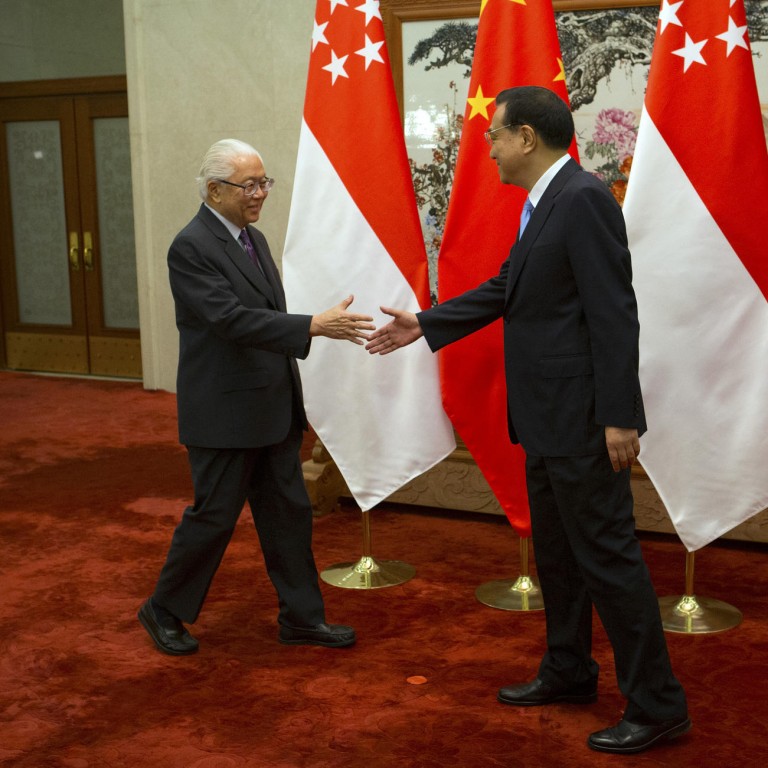
China finds a trusted friend in adaptable Singapore
Tan Chin Hwee says the small nation state continues to act as a key bridge between East and West, tirelessly adapting the development lessons of the past to today's circumstances
All great things start from the beginning," Lao Tzu said. Ever since Lee Kuan Yew visited China nearly four decades ago for a meeting with Mao Zedong , the relationship between Singapore and China has been a unique one. On the economic front, China was Singapore's top trading partner and export destination last year, with trade totalling S$121.5 billion (HK$696 billion), up from S$115.2 billion in 2013.
Singapore was also China's largest foreign investor for the second consecutive year in 2014, with investments of US$5.8 billion in over 700 projects. Issues of governance also rank highly on both countries' lists, with officials visiting one another regularly for insights and exchanges.
Singapore President Tony Tan's recent state visit with President Xi Jinping to mark 25 years of diplomatic ties is a testimony to our relationship at a personal level between the leaderships of the two countries. Lee Kuan Yew, Goh Keng Swee and other Singapore officials of their generation and after have left us with an intimate relationship built over four decades.
However, since the 1980s, when the first special economic zones were built with Singapore's help, the dynamics have slowly changed; Singapore is no longer just the teacher and China the keen student. As students of management studies well know, being influenceable holds the key to influencing others. Singapore has had to adapt to the changing circumstances and mould the relationship into one where both countries participate in an exchange of insights and best practices.
Maintaining goodwill with mutual respect should be a key consideration, along with fostering cooperation in existing and new initiatives. An example of a successful government-to-government project is the Sino-Singapore Tianjin Eco-city, started in 2007, to develop a sustainable model of urban living.
Maintaining the precarious positioning of Singapore on the global stage should be another priority. Singapore has been a trusted bridge between the West and East, and has maintained a neutral stance on global issues, from the South China Sea territorial disputes to the US desire to rebalance Asia. Being a small nation state, Singapore has the virtue of remaining nonpartisan in confrontations.
Additionally, it has to continue to find the best ways to add value to Asia and the world. Singapore is taking steps to increase worker productivity, spearheading thought leadership and leveraging its networks to help citizens and neighbours reach their potential. As a member of Asean, it can continue to play a key coordinator role between the Association of Southeast Asian Nations, mainland China and Hong Kong.
Given that mainland China and Hong Kong have been at the forefront of the global economy, it is in Singapore's interest to maintain a good relationship with both, working together to strengthen governance and add value to each other's economy through investments and trade. These win-win exchanges can only be effective with respect and humility.
The Singapore Summit in September is one event that demonstrates Singapore's role in the global arena. It provides an intimate platform for leaders to discus economics and seek solutions to problems.
As Singapore approaches its 50th birthday this year, citizens can reflect on how far we have come. Fifty years ago, no one could have predicted that this small country with no natural resources would reach its current state. Nevertheless, we should not rest on our laurels, or shy away from sharing this unique experience with China. As one senior China Securities Regulatory Commission official told me last week: "Why should we waste time learning from the West blindly? We should just watch Singapore, which has digested these learnings in the past and has adapted them well to our unique Asian circumstances."
Indeed, being influenceable is the key to influencing others.
